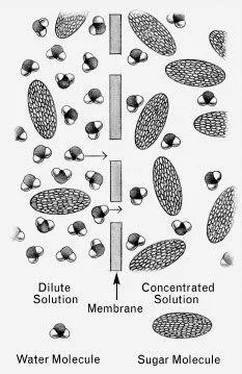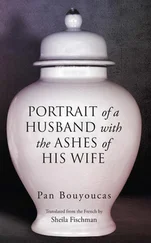Marlene Parrish - What Einstein Told His Cook 2
Здесь есть возможность читать онлайн «Marlene Parrish - What Einstein Told His Cook 2» весь текст электронной книги совершенно бесплатно (целиком полную версию без сокращений). В некоторых случаях можно слушать аудио, скачать через торрент в формате fb2 и присутствует краткое содержание. Год выпуска: 0101, Издательство: W. W. Norton & Company, Жанр: Кулинария, на английском языке. Описание произведения, (предисловие) а так же отзывы посетителей доступны на портале библиотеки ЛибКат.
- Название:What Einstein Told His Cook 2
- Автор:
- Издательство:W. W. Norton & Company
- Жанр:
- Год:0101
- ISBN:нет данных
- Рейтинг книги:4 / 5. Голосов: 1
-
Избранное:Добавить в избранное
- Отзывы:
-
Ваша оценка:
- 80
- 1
- 2
- 3
- 4
- 5
What Einstein Told His Cook 2: краткое содержание, описание и аннотация
Предлагаем к чтению аннотацию, описание, краткое содержание или предисловие (зависит от того, что написал сам автор книги «What Einstein Told His Cook 2»). Если вы не нашли необходимую информацию о книге — напишите в комментариях, мы постараемся отыскать её.
What Einstein Told His Cook 2 — читать онлайн бесплатно полную книгу (весь текст) целиком
Ниже представлен текст книги, разбитый по страницам. Система сохранения места последней прочитанной страницы, позволяет с удобством читать онлайн бесплатно книгу «What Einstein Told His Cook 2», без необходимости каждый раз заново искать на чём Вы остановились. Поставьте закладку, и сможете в любой момент перейти на страницу, на которой закончили чтение.
Интервал:
Закладка:
And that’s the problem. We all know that saturated FA’s are cholesterol-boosting villains, and so then are the similarly shaped trans FA’s. The body treats them as a type of saturated FA, with all its negative health implications—and more.
Note that trans FA’s still have some double bonds, so they are included as unsaturated FA’s in the Nutrition Facts charts on food labels. By the time you read this, however, the FDA may be requiring the amounts of trans FA’s to be stated separately.
WHEN GOOD FATS GO BAD
I’ve been reading and hearing a lot of buzz lately about how easily most vegetable oils become rancid and the possible harm that can cause. From what I understand, oils become rancid, or oxidized, when exposed to heat or oxygen or light, creating free radicals that wreak havoc in the body. How can I avoid oxidized oils?
R ancid is a sort of catchall word that comes from the Latin rancidus , meaning rank or stinky. The word has no explicit chemical meaning. It is used loosely to mean bad-smelling and -tasting, most often in reference to over-the-hill fats. There are several things you can do to avoid fat rancidity. But first, let’s sort out the concepts in your question, because oxidation is only one of the ways in which fats can spoil.
Fats and oils can become rancid either by reacting with oxygen ( oxidative rancidity ) or by reacting with water ( hydrolytic rancidity ). Also, when oils are heated to high temperatures, as in deep-frying, they can change chemically in other wicked ways.
Here, then, is a highly condensed version of “Fats Gone Wild.”
Oxidative rancidity:This happens primarily to fats containing unsaturated fatty acids. Helped along by heat, light, trace metals, or certain enzymes, unsaturated fatty acids react with oxygen in the air, producing highly reactive peroxides and free radicals that, as you say, can wreak havoc in our bodies. (See “Those home-wrecking radicals,” chapter 4.)
Whether the free radicals in rancid oils persist long enough to be harmful when the oil is ingested is debatable. But many of the stable end-products of the free-radical-driven reactions are bad-smelling chemicals called aldehydes and ketones, so rancid oils are unpleasant to ingest at the very least.
Many vegetable oils contain natural antioxidants—free-radical killers—called tocopherols ; if they didn’t, they wouldn’t stay fresh as long as they do. Animal fats, on the other hand, which contain mostly saturated fatty acids, are not as susceptible to oxidative rancidity. That’s why lard, for example, can be kept nearly forever without going rancid.
To foil oxidative rancidity, then, you should protect your vegetable oils from the oxygen, heat, and light that spark the free-radical reactions. Keep the bottle tightly sealed in a cool, dark place. Even refrigerating your oils isn’t a bad idea if you don’t use them very often. Because every oil is a mixture of fats with different freezing (solidification) temperatures, some of them may freeze in the fridge, but they will liquefy again on warming.
Hydrolytic rancidity:This is caused by hydrolysis : the reaction of a fat with water, whether the fat is saturated or unsaturated. The reaction is helped along by heat or by enzymes called lipases.
When water reacts with a fat, the fat molecule splits into its glycerol portion and its fatty acid portions. Free fatty acids generally smell pretty bad, especially the lightweight (small-molecule) ones that can float off easily into the air toward our noses. The predominant bad-smelling, small-molecule fatty acid in rancid butter is butyric acid, whose other common habitat is unwashed armpits.
Butter is ideal prey for both oxidative and hydrolytic rancidity: oxidative because 32 percent of its fatty acids are unsaturated, and hydrolytic because it contains about 18 percent water, distributed in the form of microscopic droplets throughout the matrix of fat. Defensive tactics against rancidity in butter must therefore include protection from both oxygen and heat, inasmuch as heat accelerates both types of rancidity. These considerations dictate both airtight wrapping and refrigeration.
Rancidity from deep-frying:When a piece of food is plunged into very hot fat, the water on its surface—and all foods contain water—can react with the fat to hydrolyze it, freeing its fatty acids. As the fat is used and perhaps reused, the free fatty acids build up, negatively affecting its flavor and that of anything fried in it.
But that isn’t the worst of it. When the fatty acids are split off from a fat molecule, what remains is the glycerol portion of the molecule. Upon further heating, the glycerol decomposes into a highly irritating, acrid gas aptly named acrolein . At about the same time, the fatty acids decompose, producing smoke. The longer the fat is heated, the more free fatty acids it will contain and the more likely it will be to smoke at progressively lower temperatures. Another thing that happens to long-used deep-frying oil is polymerization: the free fatty acids combine to form large molecules that darken and thicken the oil until it is almost syrupy.
The moral of the frying story is that to minimize the production of foul-tasting fatty acids, lung-clogging smoke, eye-watering acrolein, and other possibly carcinogenic compounds, use your deep-frying oil only once or at most twice. I dispose of mine by pouring it into an empty food can, freezing it, and discarding it with my solid garbage.
Sidebar Science: Those home-wrecking radicals
ELECTRONS,not unlike people, have a strong compulsion to pair up. A free radical is an atom or group of atoms that contains one or more unpaired electrons; that is, one or more of its electrons is missing a partner. (The etymology of “free radical” in the chemical, rather than the political, sense is convoluted and unhelpful.)
Given the slightest opportunity, a free radical will steal an electron from another molecule whose electrons are happily paired—like a predatory bachelor breaking up a marriage. That second molecule is now an unpaired-electron free radical itself, and will in turn steal an electron from a third molecule, and so on through a long chain of hundreds or thousands of partner-swapping reactions that, in our bodies, can disrupt the normal chemistry of our cells by changing the structures of molecules.
Free-radical chain reactions are quenched by chemicals called antioxidants, molecules that donate electrons to the pair-hungry free radicals, thereby quenching their spousal cravings. (The antioxidant may thereby become an electron-shy free radical itself, but not as destructive or “radical” a one as the one it quenched.)
Electron-donating antioxidants include the food additives BHA (butylated hydroxyanisol) and BHT (butylated hydroxytoluene), as well as vitamins A, C, and E.
IS LIGHT ALL RIGHT?
Other than the difference in calories, how does light olive oil differ from “regular”?
Whoa there! Light olive oil does not contain fewer calories than other olive oils or, for that matter, any edible oils. As far as calories are concerned, an oil is an oil, all oils are fats, and all fats give us approximately 9 calories of energy per gram.
The word light (or the nonword lite ) is thrown around by food manufacturers to mean anything they want it to mean, including virtually nothing. In the case of olive oil, however, all you have to do is look at the bottle and you know that in this case it means light in color, and almost certainly in flavor.
We use vegetable oils in the kitchen mainly for sautéing, frying, and dressing salads. These functions are primarily physical rather than chemical in nature. In frying, for example, oil acts as an inert liquid that allows us to cook foods very quickly at a temperature much higher than that of boiling water. On salads, oil helps the dressing to stick; it “cuts” the acid; it carries other flavors, such as those of garlic and herbs; and it imparts unctuousness—a smooth, flowing mouth feel. These qualities are all largely physical, not chemical, and any relatively flavorless oil such as canola or corn oil can do those jobs.
Читать дальшеИнтервал:
Закладка:
Похожие книги на «What Einstein Told His Cook 2»
Представляем Вашему вниманию похожие книги на «What Einstein Told His Cook 2» списком для выбора. Мы отобрали схожую по названию и смыслу литературу в надежде предоставить читателям больше вариантов отыскать новые, интересные, ещё непрочитанные произведения.
Обсуждение, отзывы о книге «What Einstein Told His Cook 2» и просто собственные мнения читателей. Оставьте ваши комментарии, напишите, что Вы думаете о произведении, его смысле или главных героях. Укажите что конкретно понравилось, а что нет, и почему Вы так считаете.












